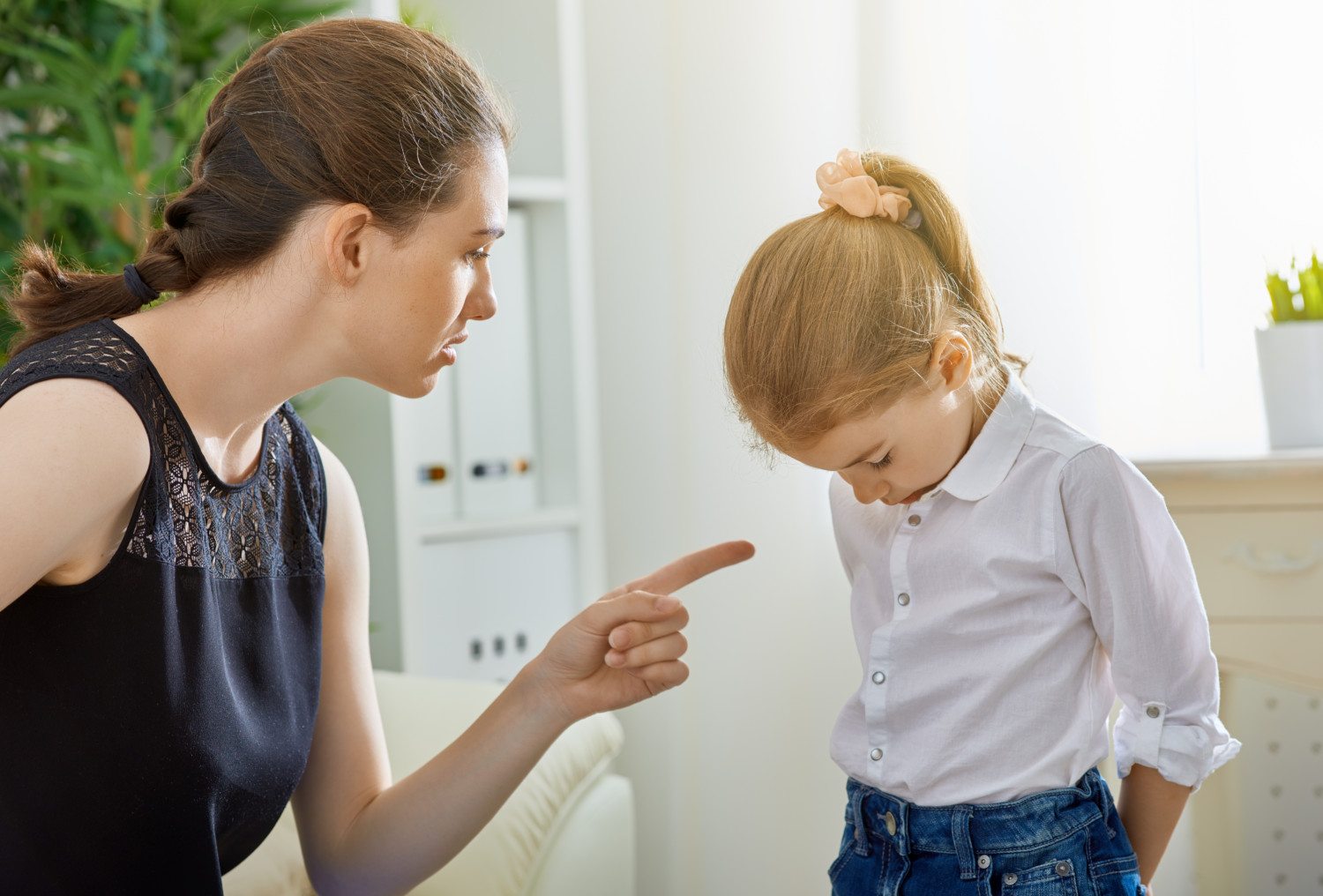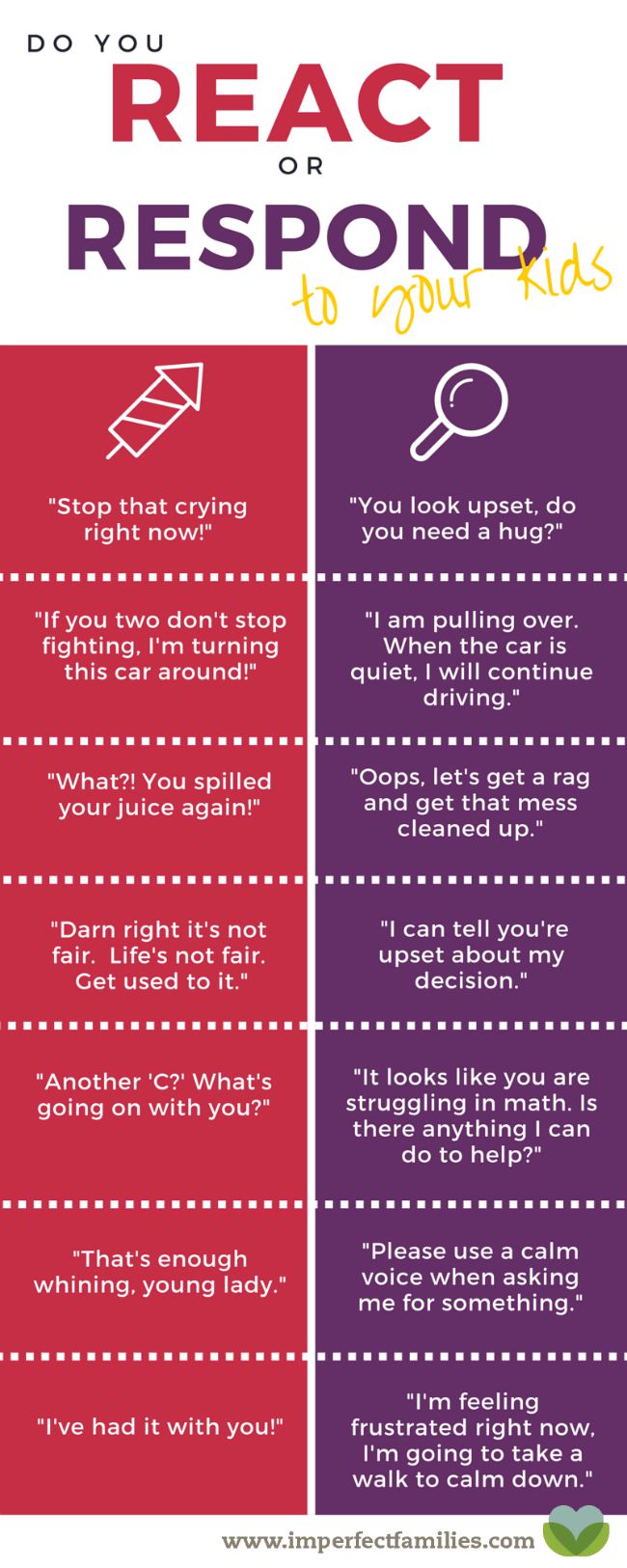Chart shows whether you’re reacting or responding to your kids

As any parent knows, raising children has its ups and downs, no matter how old your kids get or how great your relationship with them is. In moments of conflict, it can be easy to snap and either spiral into a power struggle, yell. or walk away entirely.
But that instant reaction often makes parents miss crucial opportunities to further connect with their children. Fortunately, one family therapist—Nicole Schwarz—made a helpful chart to help parents determine whether they’re reacting or responding to kids.
The Difference Between Reacting And Responding
The difference is subtle. Reactions are unconscious, and we have them in the face of conflict or struggle. They’re typically driven by beliefs or prejudices we hold. Yelling at your child to settle down when he or she is being difficult is a reaction, and it will often yield results—but it’s not the most helpful way to respond in the long term, and can have an effect on your child further down the road.
Responses, however, don’t rely on pre-existing beliefs, and they often take into account more than just your emotions. Rather than snapping at your toddler when they have a meltdown in the supermarket (because you’re reacting to the feeling of frustration and embarrassment), you give them a chance to explain what’s wrong and tell them how their behavior is affecting you. It gives you the opportunity to have a deeper conversation, lets children feel safe in expressing their emotions and helps enforce future good behavior.
Do You React Or Respond To Your Kids?
It can be hard to know whether you’re reacting or responding when you talk to your kids, but fortunately, parent coach and family therapist Nicole Schwarz shared a helpful responding vs. reacting chart on her Imperfect Families blog to help moms and dads out:
How Can You Get In The Habit Of Responding?
According to Psychology Today, all it takes to start moving towards responding—rather than reacting—is to take one big breath in the face of conflict. Take a second to really focus on what’s happening, and then process how you’d like to respond. Our unconscious reactions can take over quickly when we’re stressed, so if you slip up, don’t worry. Change can be a slow process, so keep trying and don’t be afraid to make mistakes.
When you’re not in the heat of the moment, it can also help to think through why you react the way you do. Did your parents respond to stress in the same way? Do you shut down because you worry that you won’t be able to fix the problem? It also helps to take a moment to think about the kind of conscious responses you would like to have instead, and then take stock of the outcome of your responses vs. your reactions. In time, responding will become a matter of habit—and you’ll enjoy all of the benefits that come with it.
To read Schwarz’s full post, you can check out her blog, Imperfect Families.






